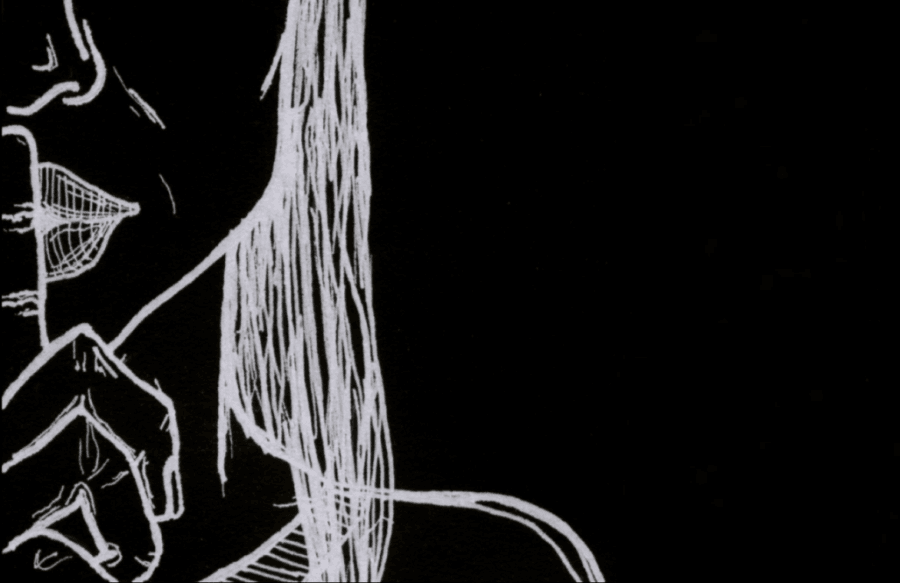Jenni Holtz | The DePaulia
DePaul fails at discipline transparency
March 5, 2018
The disciplinary process at DePaul is conducted in secrecy. Students who have gone through it say they are kept in the dark, and the information that the university does release is negligible.
The university won’t reveal how many students are suspended, expelled or otherwise sanctioned. The DePaul Department of Public Safety does release annual numbers on how many students are referred for student discipline, but no public record exists of what happens after the referral.
When asked for basic numbers on student discipline, without naming individual students, DePaul refused, with university spokesperson Carol Hughes claiming that it is a matter of privacy and school policy.
Hughes said that “(the university’s) practice is not to discuss specific actions that may or may not be taken by the university regarding the student conduct process, including outcomes, in order to protect student privacy.”
Releasing general statistics about DePaul’s disciplinary actions, which is what was asked of Hughes, would not be a violation of student privacy, according to a national expert on university privacy policy.
“Statistics, by definition, are not private,” said Frank LoMonte, a senior legal fellow at the Student Press Law Center. “Numbers do not give out any information about an individual.”
Because DePaul is a private university, it is not required to disclose information that other public schools are. It is, however, legally required to disclose alcohol, drug and weapon offenses as required by the Department of Education, LoMonte said.
LoMonte pointed to the University of Chicago as a private school that shares more information than is required by federal law. LoMonte says this is because the university has a “well-organized and vocal student body,” and the administration has listened.
Compared even to other private universities in Illinois, DePaul falls far behind on the information provided to the public about its internal judicial system.
Loyola University, Columbia College, Northwestern University and the University of Chicago all provide extensive information on their judicial processes that is readily available to the public on their websites.
DePaul does release its student conduct processes, but you need a university username and password to access them, leaving them out of reach for parents and non-students.
Loyola, however, describes its disciplinary system with a video that lists the exact steps taken in the judicial process, as well as an FAQ.
After a report is filed at Loyola, the accused student will receive a notification letter from the university. A meeting will take place within five business days of receiving the notification. After the meeting occurs, the accused will get a verdict, and if necessary, a punishment within three business days.
Columbia also reveals its judicial process in numerous documents available to the public.
Similarly, Northwestern University describes disciplinary actions extensively on their student conduct website. Although there is no step-by-step process illustrated publically, there are several sections of the website dedicated to sanctions for individuals, organizations and housing.
Of all the private institutions in Chicago, the University of Chicago releases the most in-depth information on their student disciplinary cases. Each year the school outlines and publically releases the number of hearings convened and provides a brief description of what caused the hearing in the first place, all broken down by college.
Everything from cheating on tests to vandalism to physical abuse is reported, and each individual account is described in a couple sentences, along with what punishment they received.
This story was a collaborative effort that features reporting by Benjamin Conboy, Mariam Mackar, Cody Corrall, Marissa Nelson, Ally Pruitt, Emily Cosgrove, Ariana Kraft, Daniele Laguckaite, Kelly Garcia and Jocelyn Martinez.

Zain / Jun 21, 2018 at 5:41 am
I used to suffer from HERPES SIMPLEX VIRUS for about 3 years. No medications or treatments ever really did anything for me (i tried them all no one work. but I was actually able to completely cure HERPES naturally after countless hours of online research. What worked for me is as follows: I saw Dr CAMALA Information online that he normally cure and treat disease and infirmities with his Herbal Medicine, I never really believed the people who where recommending him thou i saw on blog about 6 people where also testifying on how they were cured by Dr CAMALA, and still Ellen recommend Dr CAMALA who uses herbal medication to cure HERPES SIMPLEX VIRUS and gave me his email, so i mail him He told me all the things I need to do and also give me instructions to take, which I followed properly.Before I knew what is happening after two weeks the HERPES SIMPLEX VIRUS that was in my body got vanished. so if you are also heart broken and also need a help, . if you are infected with any disease like HIV,AIDS, CANCER,HERPES SIMPLEX VIRUS, or any other disease you can also be happy like me by contacting…..
Name: Dr.CAMALA
Email him: dr.camalahivadscure@yahoo.com
What apps Number: +2349055637784
I“m given you 100% grantee, soon as you have getting in touch
with Dr.CAMALA your problems will be solved accurately.
Thanks..
Robb Report / Jun 10, 2018 at 12:06 am
Lol, DePaul literally convicted me for cheating when the supposed answer I copied DID NOT even match. As a student of color, I found it hilarious that the entire review board was white, especially when the university preaches diversity. Oh wait, I forgot diversity was only in marketing the university to future students. There is literally no transparency…